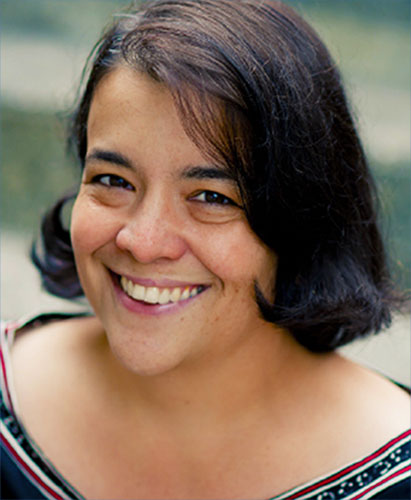Center for Instructional
Innovation and Assessment
INNOVATIVE TEACHING SHOWCASE
2014
2015
Institutional Goals
Listed below are selected learning outcomes in the area of critical thinking that Western Washington University is actively integrating into its curriculum. Each learning outcome is listed with its definition, along with a description of how Lysa Rivera's teaching strategies meet each of these student learning outcome goals.
Writing
| Learning Outcomes | Definition | Course Outcomes |
| Rhetorical Knowledge | Understands and addresses the needs of the rhetorical situation and purpose; responds appropriately to the needs of varied audiences and situations. | Students in my classes will be able to identify, understand, and eventually produce literary criticism, a genre of analytical writing unique to literary studies. In my upper division classes students are responsible for retrieving, reviewing, and analyzing examples of literary criticism in order to understand more thoroughly the type of writing they will eventually be asked to produce. |
| Critical Analysis | Develops, examines, situates, and communicates a reasoned perspective clearly to others. | In all of my classes students have multiple opportunities to engage literary texts through analytical writing, a mode of scholarly inquiry and expression that seeks to explore a central idea, tension, or question based on a text(s) and on the student's engagement with that text. Key to the analysis is breaking down the text into components and showing the relationship between the subordinate arguments and overall controlling ideas. Analysis is always challenging because it demands that students move beyond summary, description, or narration. |
| Composing Process | Understands writing as a recursive process that involves drafting, re-thinking, editing, re-conceptualizing. | In all of my WP3 classes I honor a process-oriented approach to writing, which generally characterizes writing as following a number of processes, including prewriting, drafting, peer reviewing, and revising. This approach focuses on how clearly and efficiently a student can express and organize his ideas, not on correctness of form. |
| Conventions Knowledge | Knows and applies conventions of standard edited English. Uses appropriate conventions for documentation and for surface features such as syntax, grammar, usage, punctuation, and spelling. | Students in my courses tend to focus more on higher-order concerns in writing than syntax, grammar, and structure; however, students in my courses are also expected to understand how form and style affect meaning. They are able to understand, for example, how repetition can distract readers, how vagueness can weaken claims, and how diction can strengthen or hinder their written voice. Students in my 300- and 400-level courses will also understand the basic tenets of the MLA formatting system. |
Source:
Adapted from Western Washington University's Learning Outcomes for Writing II.
Critical Thinking
| Learning Outcomes | Definition | Course Outcomes |
| Identification | Accurately identifies and interprets evidence. | Students in my classes learn to see literary texts as crafted cultural artifacts that both reflect and shape the larger communities they represent. My students learn how to analyze evidence by suspending judgment so that critical thinking can develop. Students in my classes learn to identify and define significant parts of a text and how they are related. They learn to look for patterns in texts that might provide keys to the larger meanings of a text. They also learn how to make the implicit explicit by learning how to convert to direct statements meanings that are suggested but not overtly stated in any given text. |
| Alternative Consideration | Considers major alternative points of view. | My students understand that to argue a point effectively, one must account for alternative viewpoints and positions. Students in my English 313 course, for example, will analyze one literary text (Toni Morrison�s Beloved) through multiple theoretical and/or critical lenses. Doing this enables them to understand how a single text can contain multiple interpretations and �readings,� which rather than lead to confusion, actually generates ideas and questions. |
Source:
Adapted from Western Washington University's Learning Outcomes for Writing II.



